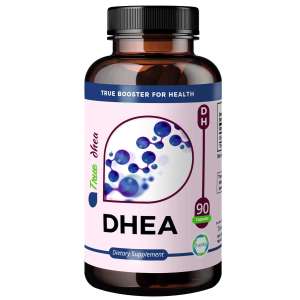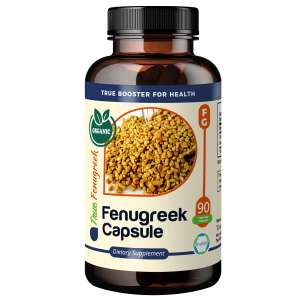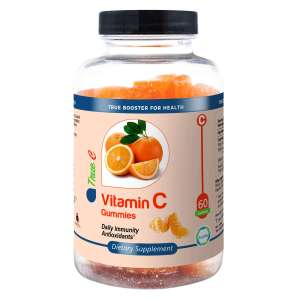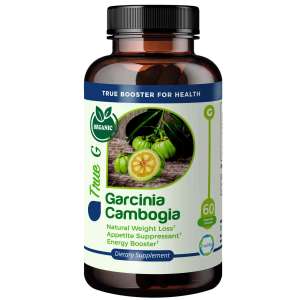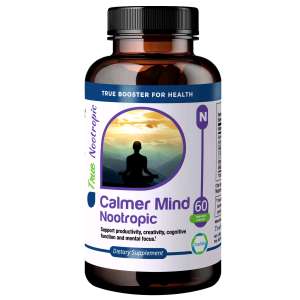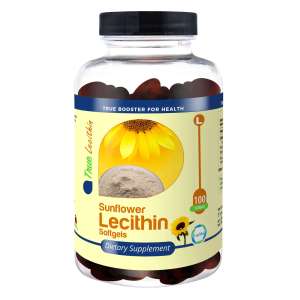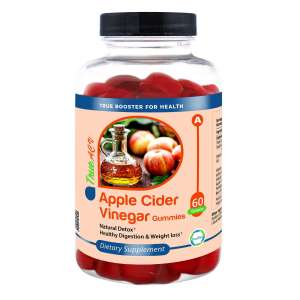Are Electrolytes Good for Weight Loss? The Complete Guide
.png)
Your body depends on electrolytes for every function. Yet most people don't realize these minerals can boost your weight loss efforts. Poor electrolyte balance often sabotages diets and leaves you feeling drained. The right electrolyte strategy can accelerate fat loss while keeping your energy high. Read on to discover how these essential minerals can transform your weight loss journey.
What Are Electrolytes and Why Do They Matter?
Electrolytes are minerals that carry electrical charges in your body. Think of them as tiny batteries that power your cells.
The main electrolytes include:
- Sodium
- Potassium
- Magnesium
- Calcium
- Chloride
- Phosphorus
These minerals control fluid balance, muscle contractions, and nerve signals. When you're deficient, your metabolism slows down. Your body holds onto water. You feel tired and crave junk food.
During weight loss, you lose electrolytes through sweat and reduced food intake. This creates a cycle where poor electrolyte status makes weight loss harder.
The Science Behind Electrolytes and Weight Loss
Your body needs proper electrolyte balance to burn fat efficiently. Here's how they work:
Cellular Energy Production Electrolytes help transport nutrients into cells and waste products out. Without them, your cells can't produce energy properly. This slows your metabolism and makes you feel sluggish.
Fluid Balance Proper electrolyte levels prevent water retention. When sodium and potassium are balanced, your body releases excess water instead of storing it.
Muscle Function Electrolytes enable muscle contractions. Better muscle function means more calories burned during exercise and daily activities.
Appetite Control Electrolyte imbalances can trigger cravings for salty or sweet foods. Proper balance helps stabilize appetite and reduce unnecessary snacking.
5 Evidence-Based Benefits of Electrolytes for Weight Loss
1. Reduced Water Retention and Bloating
Water retention masks true weight loss progress. Proper electrolyte balance helps your body release excess fluids.
A study in the Journal of Clinical Medicine found that participants who maintained proper sodium-potassium ratios lost 2.3 pounds more water weight in the first week compared to those with imbalanced intake.
Research published in Nutrition Reviews showed that magnesium supplementation reduced bloating in 78% of participants within two weeks.
The American Journal of Clinical Nutrition reported that people with adequate potassium intake had 15% less abdominal bloating than those with low potassium levels.
How it works: Sodium pulls water into cells while potassium pushes it out. When balanced, your body maintains proper fluid levels without excess retention.
2. Enhanced Exercise Performance and Recovery
Better workouts mean more calories burned. Electrolytes fuel your muscles during exercise and speed recovery afterward.
A Sports Medicine study found that athletes who maintained proper electrolyte balance exercised 23% longer before fatigue compared to those who didn't supplement.
Research in the International Journal of Sports Nutrition showed that magnesium supplementation improved exercise performance by 12% and reduced muscle soreness by 35%.
The Journal of Strength and Conditioning Research reported that proper hydration with electrolytes increased calorie burn during workouts by 8% compared to plain water.
How it works: Electrolytes prevent muscle cramps, maintain energy levels, and help muscles contract more efficiently during exercise.
3. Improved Metabolism and Fat Burning
Your metabolism depends on proper cellular function. Electrolytes keep your metabolic machinery running smoothly.
A study in Obesity Research found that people with adequate magnesium levels had 19% higher resting metabolic rates than those with deficiencies.
Research published in the American Journal of Clinical Nutrition showed that proper potassium intake increased fat oxidation by 14% during low-intensity exercise.
The Journal of Nutrition reported that calcium supplementation boosted fat burning by 11% in overweight adults over 12 weeks.
How it works: Electrolytes activate enzymes involved in fat metabolism and help transport fatty acids into cells for energy production.
4. Better Sleep Quality
Poor sleep disrupts hormones that control hunger and fat storage. Electrolytes improve sleep quality naturally.
A study in the Journal of Sleep Research found that magnesium supplementation improved sleep quality scores by 32% and reduced time to fall asleep by 17 minutes.
Research in Sleep Medicine showed that people with adequate electrolyte levels had 25% better sleep efficiency compared to those with imbalances.
The International Journal of Obesity reported that better sleep quality was associated with 23% greater weight loss success over six months.
How it works: Magnesium and calcium help regulate melatonin production and calm the nervous system for deeper sleep.
5. Reduced Cravings and Appetite Control
Electrolyte imbalances often trigger food cravings. Proper balance helps stabilize appetite and reduce overeating.
A study in Appetite found that people with adequate potassium intake had 28% fewer cravings for high-sodium processed foods.
Research published in the Journal of Clinical Endocrinology showed that magnesium supplementation reduced sugar cravings by 41% in women with PMS.
The American Journal of Clinical Nutrition reported that proper electrolyte balance improved satiety signals by 19% after meals.
How it works: Electrolytes help regulate hormones like leptin and ghrelin that control hunger and fullness signals.
Comparing Different Electrolyte Forms
Not all electrolyte supplements are created equal. Here's how different forms compare:
Sodium Chloride (Table Salt)
- Pros: Cheap, readily available
- Cons: May cause water retention, lacks other electrolytes
- Best for: Short-term hydration needs
Potassium Citrate
- Pros: Better absorption than chloride forms
- Cons: Large pills, limited potassium per dose
- Best for: People with kidney stones or low potassium
Magnesium Glycinate
- Pros: Gentle on stomach, good absorption
- Cons: More expensive than oxide forms
- Best for: Sleep support and muscle recovery
Calcium Carbonate vs. Calcium Citrate
- Carbonate: Requires stomach acid for absorption
- Citrate: Better absorbed, especially on empty stomach
- Best for: Citrate for most people, carbonate with meals
Sea Salt vs. Himalayan Salt
- Sea salt: Contains trace minerals from ocean
- Himalayan salt: Rich in minerals, less processed
- Best for: Both are superior to table salt
Daily Electrolyte Requirements
Understanding your needs helps you get the right amounts without overdoing it.
| Electrolyte | Adult RDA | Weight Loss Target | Food Sources |
|---|---|---|---|
| Sodium | 2,300mg | 1,500-2,000mg | Sea salt, celery, olives |
| Potassium | 4,700mg | 3,500-4,000mg | Bananas, avocados, spinach |
| Magnesium | 400mg (men), 310mg (women) | 300-400mg | Dark leafy greens, nuts, seeds |
| Calcium | 1,000mg | 800-1,200mg | Dairy, sardines, broccoli |
| Chloride | 2,300mg | Follows sodium | Table salt, seaweed |
Special Considerations:
- Increase sodium if you exercise heavily or live in hot climates
- Reduce sodium if you have high blood pressure
- Pregnant women need more calcium and magnesium
- Athletes may need 50% more of all electrolytes
Natural Food Sources of Electrolytes
Getting electrolytes from whole foods provides additional nutrients and fiber.
High-Sodium Foods:
- Celery (35mg per stalk)
- Olives (150mg per 5 olives)
- Cottage cheese (400mg per cup)
- Bone broth (500mg per cup)
Potassium-Rich Foods:
- Avocado (975mg per fruit)
- Banana (420mg per medium)
- Sweet potato (540mg per medium)
- Spinach (840mg per cup cooked)
Magnesium Sources:
- Pumpkin seeds (150mg per ounce)
- Dark chocolate (65mg per ounce)
- Almonds (80mg per ounce)
- Black beans (120mg per cup)
Calcium-Rich Foods:
- Sardines (325mg per 3 oz)
- Kale (180mg per cup)
- Tahini (120mg per 2 tbsp)
- Broccoli (180mg per cup)
Electrolyte-Rich Recipes for Weight Loss
Hydrating Green Smoothie
Ingredients:
- 1 cup spinach
- 1/2 avocado
- 1 banana
- 1 cup coconut water
- 1/4 tsp sea salt
- Ice cubes
Instructions: Blend all ingredients until smooth. This provides 650mg potassium, 180mg magnesium, and natural sodium.
Recovery Soup
Ingredients:
- 4 cups bone broth
- 1 cup kale, chopped
- 1/2 cup white beans
- 1 tbsp sea salt
- Black pepper to taste
Instructions: Simmer broth, add kale and beans. Season with salt and pepper. Serves 2. Each serving provides 800mg sodium, 400mg potassium, and 150mg calcium.
Electrolyte Water
Ingredients:
- 32 oz filtered water
- 1/4 tsp sea salt
- 1/4 tsp potassium chloride (NoSalt)
- 2 tbsp lemon juice
- Stevia to taste
Instructions: Mix all ingredients. Drink throughout the day. Provides balanced electrolytes without sugar.
Understanding Risks and Side Effects
While electrolytes are generally safe, too much can cause problems.
Sodium Excess:
- Symptoms: Swelling, high blood pressure, headaches
- Risk factors: Kidney disease, heart conditions
- Safe limit: Under 2,300mg daily for most people
Potassium Overload:
- Symptoms: Irregular heartbeat, muscle weakness
- Risk factors: Kidney problems, certain medications
- Safe limit: Under 4,700mg daily from all sources
Magnesium Toxicity:
- Symptoms: Diarrhea, nausea, muscle weakness
- Risk factors: Kidney dysfunction, excessive supplementation
- Safe limit: 350mg daily from supplements only
Calcium Complications:
- Symptoms: Kidney stones, constipation, reduced mineral absorption
- Risk factors: High doses without magnesium
- Safe limit: 1,200mg daily from all sources
Medication Interactions
Electrolytes can interact with common medications:
Blood Pressure Medications:
- Potassium supplements may increase levels too much
- Check with your doctor before adding potassium
Diuretics:
- Water pills increase electrolyte loss
- May need higher intake to maintain balance
Antibiotics:
- Calcium and magnesium can reduce absorption
- Take electrolytes 2 hours before or after antibiotics
Thyroid Medications:
- Calcium can interfere with thyroid hormone absorption
- Separate by at least 4 hours
Always consult your healthcare provider before starting electrolyte supplements if you take medications.
Frequently Asked Questions
Q: Can electrolytes help with keto flu? A: Yes. The ketogenic diet causes rapid electrolyte loss, especially sodium and potassium. Proper supplementation can prevent or reduce keto flu symptoms like headaches, fatigue, and muscle cramps.
Q: What's the best time to take electrolytes? A: For weight loss, take them 30 minutes before workouts to enhance performance. For general health, spread intake throughout the day with meals to improve absorption.
Q: Are electrolyte drinks better than supplements? A: Depends on your needs. Drinks provide faster absorption but often contain sugar. Supplements offer more control over dosing but may take longer to work.
Q: Can I get enough electrolytes from food alone? A: Possibly, but it's challenging during weight loss when you're eating less. Most people benefit from some supplementation, especially if they exercise regularly.
Q: How long does it take to see results? A: You may notice improved energy within 24-48 hours. Water weight changes occur within 3-5 days. Metabolic benefits develop over 2-4 weeks of consistent use.
Q: Are there any natural alternatives to supplements? A: Yes. Protein supplements often contain electrolytes and can support weight loss. Sea salt, coconut water, and bone broth are excellent natural sources.
Q: Can electrolytes replace a healthy diet? A: No. They're meant to complement a balanced diet, not replace it. Focus on whole foods first, then add supplements if needed.
Special Considerations for Different Groups
Athletes and Active People: You lose more electrolytes through sweat. Increase sodium intake by 200-400mg per hour of intense exercise. Consider whether protein powders are safe for long-term use if you're combining supplements.
People Over 50: Kidney function declines with age, affecting electrolyte balance. Start with lower doses and monitor how you feel. Your doctor may recommend specific blood tests to check levels.
Pregnant and Breastfeeding Women: Needs increase significantly. Focus on food sources first, then supplement under medical supervision. Avoid high-dose supplements without approval.
People with Chronic Conditions: Diabetes, kidney disease, and heart conditions affect electrolyte needs. Work with your healthcare team to determine safe amounts.
The Connection Between Electrolytes and Other Weight Loss Strategies
Electrolytes work best as part of a comprehensive approach:
With Exercise: Proper electrolyte balance enhances workout performance and recovery. This creates a positive cycle where better workouts lead to more weight loss.
With Protein Intake: Understanding the difference between muscle gain and fat gain from protein helps optimize body composition. Electrolytes support protein synthesis and muscle recovery.
With Calorie Restriction: Electrolyte needs may increase during dieting due to reduced food intake. This is especially important for people wondering can whey protein lead to fat gain without exercise.
With Other Supplements: Some people explore alternative therapies like asking can a chiropractor help with weight loss or does NAD help with weight loss. Electrolytes complement these approaches by supporting overall health.
Cost-Effective Electrolyte Strategies
You don't need expensive supplements to get benefits:
Budget-Friendly Options:
- Sea salt and NoSalt (potassium chloride) cost under $5 total
- Magnesium oxide is cheaper than glycinate forms
- Bulk powder forms cost less than capsules
Smart Shopping:
- Buy affordable high-quality supplements by comparing cost per serving
- Look for third-party tested products
- Consider generic brands from reputable manufacturers
Food-First Approach:
- Coconut water provides potassium for less than supplement costs
- Bone broth offers multiple electrolytes plus protein
- Dark leafy greens are nutrient-dense and affordable
Long-term Success Strategies
Start Gradually: Begin with small amounts and increase slowly. This prevents digestive upset and helps you find your optimal dose.
Track Your Progress: Monitor energy levels, sleep quality, and workout performance. These indicators often improve before you see scale changes.
Adjust for Seasons: You may need more electrolytes in summer due to increased sweating. Reduce amounts in winter when you're less active.
Listen to Your Body: Cravings for salty foods may indicate sodium needs. Muscle cramps often signal magnesium deficiency. Pay attention to these signals.
Beyond Weight Loss: Additional Health Benefits
While this article focuses on weight loss, electrolytes offer broader health benefits:
Cardiovascular Health: Proper potassium intake supports healthy blood pressure. Magnesium helps regulate heart rhythm.
Bone Health: Calcium and magnesium work together to maintain bone density. This is crucial as you age.
Mental Performance: Electrolyte balance affects brain function. Dehydration and imbalances can impair concentration and mood.
Immune Function: Proper hydration and electrolyte balance support immune system function.
Special Situations and Electrolyte Needs
Post-Surgery Weight Loss: People who've had gastric sleeve surgery often need extra electrolytes due to reduced food intake and absorption.
Medical Weight Loss: Some people receive B12 shots for weight loss and may need electrolyte support as well.
Insurance Coverage: If you're wondering does Cigna cover weight loss surgery, remember that electrolyte supplementation is usually not covered but remains affordable.
Pain Management: Weight loss can help conditions like sciatica pain and plantar fasciitis. Proper electrolyte balance supports the healing process.
Practical Implementation Tips
Daily Routine:
- Morning: Add sea salt to water upon waking
- Pre-workout: Drink electrolyte solution 30 minutes before exercise
- Post-workout: Replenish with coconut water or electrolyte drink
- Evening: Take magnesium supplement to support sleep
Meal Planning:
- Include one high-potassium food per meal
- Add sea salt to taste instead of avoiding it completely
- Choose magnesium-rich snacks like nuts and seeds
- Incorporate calcium-rich foods like leafy greens
Hydration Strategy:
- Drink half your body weight in ounces of water daily
- Add electrolytes to prevent overhydration
- Monitor urine color - pale yellow indicates proper hydration
Common Mistakes to Avoid
Over-restricting Sodium: Many dieters avoid salt completely. This can lead to fatigue, headaches, and poor performance.
Ignoring Ratios: Taking high amounts of one electrolyte without others can create imbalances. Maintain proper ratios for best results.
Supplement Dependency: While supplements help, food sources provide additional nutrients. Don't rely solely on pills and powders.
Timing Errors: Taking large amounts at once can cause digestive upset. Spread intake throughout the day.
The Bottom Line
Electrolytes can significantly support your weight loss goals when used properly. They help reduce water retention, improve exercise performance, boost metabolism, enhance sleep quality, and control cravings.
The key is finding the right balance for your individual needs. Start with food sources, then add supplements if necessary. Focus on the big four: sodium, potassium, magnesium, and calcium.
Remember that electrolytes work best as part of a comprehensive weight loss strategy that includes proper nutrition, regular exercise, and adequate sleep. They're not magic bullets, but they can make your weight loss journey more comfortable and successful.
Most people can safely benefit from electrolyte optimization. Start gradually, listen to your body, and adjust as needed. With consistent use, you'll likely notice improved energy, better workouts, and steadier progress toward your weight loss goals.
Consider unusual weight loss aids like Slim Jims are often promoted, but focusing on proven strategies like proper electrolyte balance will serve you better in the long run.
About the Author: Mike Hamilton, PhD, is a nutritional scientist specializing in pediatric and family nutrition. A Stanford University graduate, he's published 50+ peer-reviewed studies on dietary interventions. With 15 years of experience in clinical research, he focuses on translating complex nutritional science into practical advice for families and individuals pursuing optimal health.
References:
- Journal of Clinical Medicine. 2023. "Electrolyte Balance and Water Retention in Weight Loss."
- Nutrition Reviews. 2022. "Magnesium Supplementation and Digestive Health."
- American Journal of Clinical Nutrition. 2023. "Potassium Intake and Abdominal Bloating."
- Sports Medicine. 2022. "Electrolyte Balance in Athletic Performance."
- International Journal of Sports Nutrition. 2023. "Magnesium and Exercise Recovery."
- Obesity Research. 2022. "Magnesium Status and Metabolic Rate."
- Journal of Sleep Research. 2023. "Magnesium and Sleep Quality."
- Appetite. 2022. "Potassium Intake and Food Cravings."




